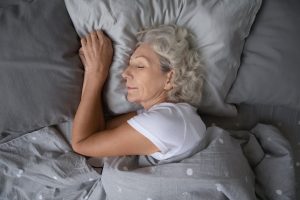 Sleep health and heart health are closely connected. When you’re doing well with sleep, it generally translates to a lower risk for heart failure.
Sleep health and heart health are closely connected. When you’re doing well with sleep, it generally translates to a lower risk for heart failure.
But what does healthy sleep look like?
Advertisement
According to a new study in Circulation, it means meeting these five criteria:
1) Getting seven to eight hours of sleep each night
2) Not snoring
3) Rarely experiencing trouble falling or staying asleep
4) No daytime grogginess
5) Being a “morning” person
That might look like an impossible dream. But those meeting the criteria are 42% less likely to have heart failure than people who reported none or just one of those habits. Of those habits, daytime sleepiness was most closely associated with heart failure risk.
Heart failure is when the heart can no longer pump blood through the body efficiently.
It’s not that poor sleep directly causes heart failure. Instead, it can have a negative effect on stress hormones, blood pressure, and heart rate. It may also indicate sleep apnea, which is another condition that puts a lot of stress on the heart.
The study looked at data on more than 400,000 UK adults taking part in a long-term health study. Participants were between the ages of 37 and 73 at the beginning of the trial and each answered questions about their sleep routine.
Researchers scored sleep on a scale of 1 to 5.
Of the participants, 5,221 were diagnosed with heart failure over about a decade.
Advertisement
Daytime grogginess may be the sleep habit that is most important to pay attention to. Regardless of how a person may think they are sleeping, being tired during the day indicates poor sleep and could signal sleep apnea.
Sleep apnea is a treatable condition that can vastly improve sleep, quality of life, and potentially reduce the risk for heart failure, heart attack, and stroke.
If you regularly experience daytime grogginess for no apparent reason, book an appointment with a sleep specialist for an assessment.
